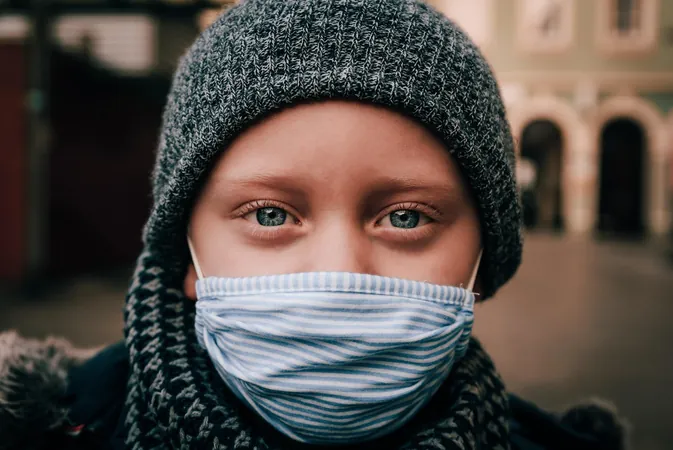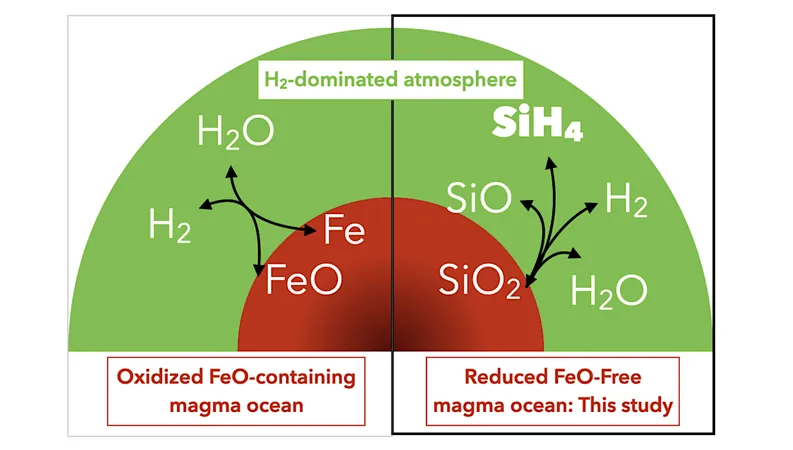
Unlocking the Secrets to Combatting Cholera: Why Clean Water and Sanitation Could Be the Game-Changer
2025-04-22
Author: Jia
The Endemic Challenge: Cholera's Persistent Grip
In a groundbreaking study, researchers at Penn State are shedding light on how public health strategies can drastically change the landscape of cholera control, especially in regions where the disease is endemic. Unlike sudden outbreaks, endemic cholera presents a unique challenge, with its persistent presence requiring innovative and sustainable solutions.
A New Approach to Intervention
The study, published in the journal PLOS Neglected Tropical Diseases, emphasizes the critical role of improving access to clean water and sanitation infrastructure over mere vaccination strategies. By focusing on the Democratic Republic of the Congo (DRC), where cholera has made its home, the findings reveal a compelling case for long-term health initiatives.
Understanding Cholera: The Silent Danger
Cholera is a bacterial infection that wreaks havoc through severe diarrhea, making water sources dangerously contaminated. Symptoms can escalate quickly, leading to severe dehydration and death. It’s estimated that cholera triggers between 21,000 and 143,000 deaths globally each year. With a roadmap targeting its elimination in 20 countries by 2030, the spotlight is on sub-Saharan Africa, where cholera remains a persistent threat.
The Power of WASH: Reshaping Public Health
While vaccinations are useful for quick responses during epidemics, implementing large-scale water, sanitation, and hygiene (WASH) programs presents a slower, costlier endeavor. Despite this, Alexandre Blake, lead researcher, highlights that WASH delivers substantial long-term benefits, not just for cholera, but for broader public health.
A Comprehensive Study: The Kalemie Model
From late 2013 to early 2016, Doctors Without Borders spearheaded intervention efforts in Kalemie with a dual focus on vaccination and WASH improvements. The researchers utilized advanced statistical models to evaluate transmission dynamics, incorporating environmental factors such as rainfall and human mobility. Their investigations revealed that much of the cholera transmission stemmed from the environment, particularly from a nearby lake that acts as a reservoir for the bacteria.
Building Immunity: The Unexpected Factors
While the seasonal movement of people had limited impact, the study pointed out that many residents developed immunity through recurring exposure. This crucial finding indicates that long-term sanitation strategies could be more effective in endemic settings compared to rapid vaccination efforts.
A Call for Future Research and Adaptation
The study calls for additional research to gauge immunity levels in endemic regions like Kalemie, helping to refine future intervention strategies. Both vaccination and WASH remain essential, but tailored approaches that consider local environmental factors and disease dynamics are key to effectively combatting cholera.
Conclusion: A Future Free from Cholera?
As experts unite on strategies to control cholera, the message is clear: a one-size-fits-all approach cannot address the complexities of endemic diseases. With focused investments in clean water and sanitation, the goal of eradicating cholera in vulnerable regions could become a reality in the near future.





 Brasil (PT)
Brasil (PT)
 Canada (EN)
Canada (EN)
 Chile (ES)
Chile (ES)
 Česko (CS)
Česko (CS)
 대한민국 (KO)
대한민국 (KO)
 España (ES)
España (ES)
 France (FR)
France (FR)
 Hong Kong (EN)
Hong Kong (EN)
 Italia (IT)
Italia (IT)
 日本 (JA)
日本 (JA)
 Magyarország (HU)
Magyarország (HU)
 Norge (NO)
Norge (NO)
 Polska (PL)
Polska (PL)
 Schweiz (DE)
Schweiz (DE)
 Singapore (EN)
Singapore (EN)
 Sverige (SV)
Sverige (SV)
 Suomi (FI)
Suomi (FI)
 Türkiye (TR)
Türkiye (TR)
 الإمارات العربية المتحدة (AR)
الإمارات العربية المتحدة (AR)